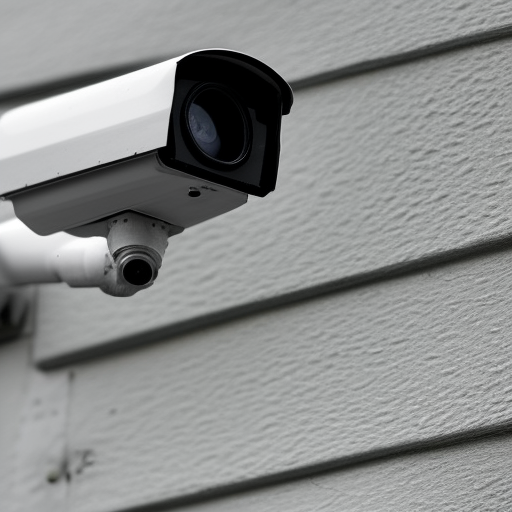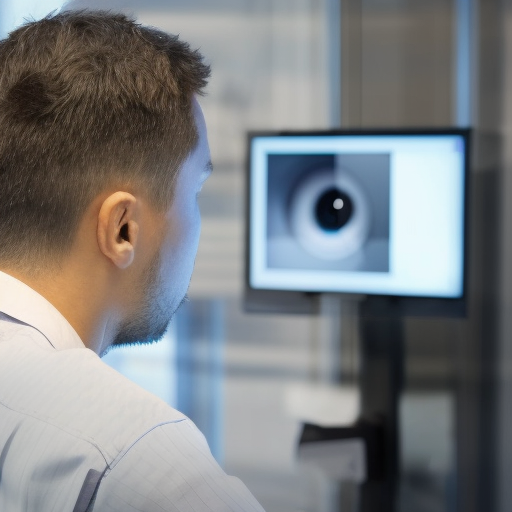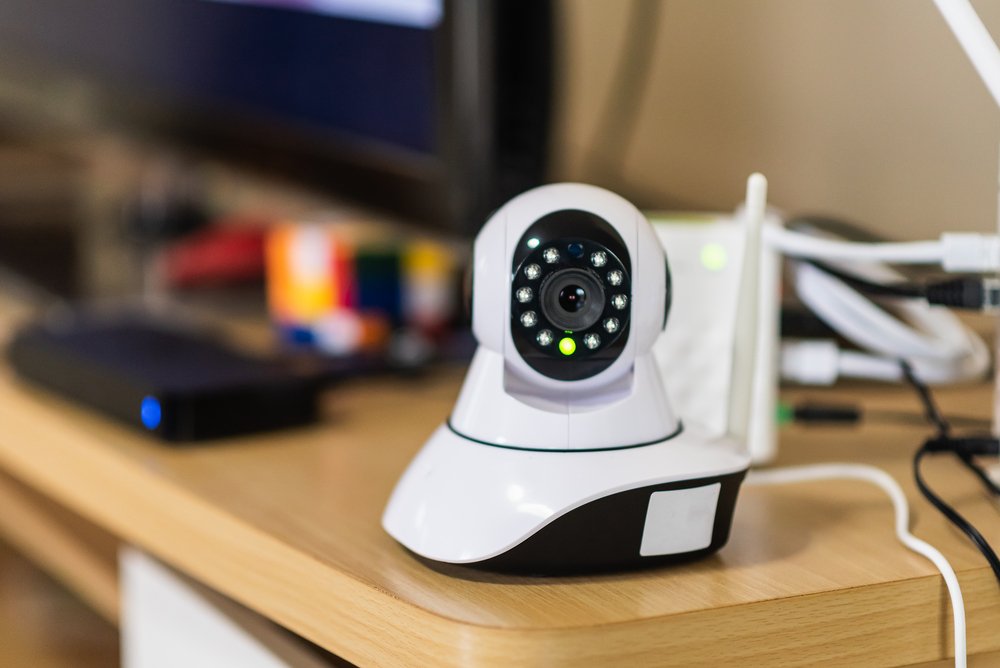Last Updated on February 7, 2023
Do you know what’s lurking around your home? Most people think of burglars, but there could be another threat that they haven’t considered – hackers. It may sound far-fetched, but it is possible for criminals to hack into CCTV systems and gain access to footage from inside homes across the UK. So can cctv cameras be hacked? Yes – unfortunately. In this blog post we’ll explore how vulnerable your CCTV system might be and provide some helpful tips on keeping it secure so you can sleep easy knowing that no one is watching you in the privacy of your own home. Read on to find out more about understanding if a hacker has gained access and best practices for preventing hacking attempts.
Table of Contents:
- What is CCTV and How Does it Work?
- Why Is It Important For Home Security?
- Can CCTV Cameras be Hacked?
- How to Tell if Your CCTV System Has Been Hacked
- Best Practices for Securing Your CCTV System
- FAQs in Relation to Can Cctv Cameras Be Hacked
- Conclusion
What is CCTV and How Does it Work?
CCTV stands for closed-circuit television. It’s a type of video surveillance system that uses cameras to capture images or videos and transmit them over a closed circuit, such as the internet or an internal network. The images and videos are then monitored by security personnel in real time or recorded for later viewing.
A CCTV system consists of several components: cameras, monitors, recorders (DVRs), cables, and power supplies. Cameras can be placed indoors or outdoors depending on the area being monitored. They come in various shapes and sizes with different features like night vision capabilities, motion sensors, etc., allowing you to customize your setup according to your needs. Monitors are used to viewing the footage from the cameras during DVRs store recordings of past events so they can be reviewed at any time if needed. Cables connect all these components together while power supplies provide electricity to keep everything running smoothly.
Why Is It Important For Home Security?

Having a CCTV system installed in your home provides peace of mind knowing that you have an extra layer of protection against intruders and other potential threats such as theft or vandalism. It also helps deter criminals since they know their activities will be recorded, which could lead to identification and prosecution if necessary. Additionally, having access to live footage allows you to monitor what’s going on inside/outside your property even when you are not there; this is especially useful for keeping an eye on kids when they get home from school or monitoring pets when left alone at home during work hours etc.
CCTV is an important security measure for homes and businesses, but it’s important to be aware of the potential risks. In this article, we’ll explore whether CCTV cameras can be hacked and what steps you can take to protect yourself.
Can CCTV Cameras be Hacked?
With the rise of home security systems, CCTV cameras have become increasingly popular. They provide a way to monitor and protect your property from intruders or other threats. But while they can be an effective deterrent, there is also the potential for them to be hacked.
Hacking into a CCTV system is relatively easy if it isn’t properly secured. Hackers can gain access to the camera feed by using brute force attacks or exploiting vulnerabilities in the software that runs on the device itself. Once they are in, they can view live footage as well as recorded video files stored on the system’s hard drive.
The most common type of attack used against CCTV systems is known as “man-in-the-middle” (MITM). This involves intercepting communications between two devices and inserting malicious code into them before sending them back out again. In this case, hackers could use MITM techniques to take control of a camera’s settings and change its viewing angle or even disable it completely without anyone noticing until it was too late.
Fortunately, there are steps you can take to prevent your CCTV system from being hacked:
- Ensure that all software running on your device is up-to-date with regular patches and updates
- Use strong passwords when setting up your system
- Regularly check for any suspicious activity, such as unusual login attempts
- Consider investing in additional security measures such as encryption technology
- Avoid connecting your camera directly to public networks like Wi-Fi hotspots
- Make sure that only authorized personnel have access to any recordings taken by the cameras
By following these simple steps, you can ensure that your CCTV system remains secure and help keep unwanted visitors away from your property. Regular updates, strong passwords, monitoring for suspicious activity, encryption technology, avoiding public networks like Wi-Fi hotspots and limiting access to recordings are all important measures to take in order to protect yourself from potential hackers.
How to Tell if Your CCTV System Has Been Hacked
It’s important to be aware of the signs that your CCTV system has been hacked. If you suspect any suspicious activity, it’s best to take action quickly.
Unusual Network Activity
If you notice unusual network activity on your home or business network, this could be a sign that someone is trying to access your CCTV system. This could include strange IP addresses connecting and disconnecting from the network or large amounts of data being transferred without explanation. It’s also possible for hackers to use malware and viruses in order to gain access to your security cameras, so keep an eye out for any suspicious downloads as well.
Unexpected Messages From Your Camera Software

Another way to tell if someone has accessed your camera is by looking at messages sent from the software itself. If you receive unexpected error messages or notifications about updates when there shouldn’t be any, then this could indicate a problem with your security system. You should also check for alerts regarding unauthorized users attempting to log in or changes made without permission – these are all signs that something isn’t right with your camera setup.
Poor Image Quality
Poor image quality can often be caused by hackers accessing and tampering with settings on the camera itself. If images suddenly become blurry or distorted when they were previously clear, then this may suggest that someone has gained access to the system and changed some settings around without permission. Check other cameras connected on the same network, too – if multiple devices have similar issues, then it’s likely due to malicious interference rather than just a technical fault with one particular device alone.
Missing Video Footage
Missing video footage is another common sign of hacking attempts – if recordings suddenly stop appearing where they should normally show up (such as within cloud storage), then this suggests that somebody may have tampered with them before they reached their destination point. Keep an eye out for gaps in recordings which weren’t present before – these are usually indicative of malicious interference rather than technical faults such as power cuts, etcetera.
Best Practices for Securing Your CCTV System
When it comes to protecting your home or business from intruders, CCTV systems are a popular choice. But with the rise of cybercrime, it’s important to make sure that your system is secure and not vulnerable to hackers. Here are some best practices for securing your CCTV system:
1. Use Strong Passwords
Make sure you use strong passwords when setting up your CCTV system. Avoid using common words or phrases, and include numbers and symbols in order to make them harder for potential hackers to guess. Change the default password provided by the manufacturer as soon as possible, and regularly update thereafter.
2. Regularly Update Firmware
Keeping your firmware updated is one of the most effective ways of ensuring that any security vulnerabilities present in older versions can be patched up quickly and easily. Check with the manufacturer periodically for updates on their website or via email notifications, so you don’t miss out on important security patches released by them over time.
Limit access to your network if possible, only allowing those who need it within the environment. Additionally, ensure that all devices connected directly or indirectly (e.g., routers) have appropriate firewalls installed, which can detect malicious activity before they enter your network infrastructure itself. This way, even if someone does manage to get past these defences, they won’t be able to penetrate further into more sensitive areas such as data storage.
It is always good practice to monitor the activity on any device connected within a networked environment, especially when dealing with something like a CCTV system where confidential footage may be stored or viewed. Utilize tools such as log monitoring software which allow administrators control over who has access and view logs related activities taking place across their entire infrastructure, including but not limited to IP cameras themselves. This way, suspicious behaviour can be identified quickly and dealt with accordingly before becoming problematic down the line.
FAQs in Relation to Can Cctv Cameras Be Hacked
Can a wired CCTV system be hacked?
Yes, a wired CCTV system can be hacked. It is possible for an attacker to gain access to the network and view or manipulate data on the system. To protect against this type of attack, it is important to use strong passwords and regularly update security protocols. Additionally, users should ensure that their CCTV systems are installed in secure locations with limited physical access. By taking these steps, users can help reduce the risk of their CCTV systems being hacked.
Can you tell if your security camera is hacked?
It is possible for a security camera to be hacked, but it can be difficult to tell. Generally speaking, if you notice any unusual activity or changes in the way your camera operates, then it may have been compromised. Additionally, if you receive strange notifications or messages from your security system that you weren’t expecting, this could also indicate a breach. It’s important to regularly check for updates and take steps to secure your device, such as changing passwords and enabling two-factor authentication. If you suspect that your security camera has been hacked, contact the manufacturer immediately for help.
How do you know if a CCTV is watching you?
It is not always easy to tell if a CCTV camera is watching you. However, there are some signs that can indicate the presence of a surveillance system. Look for cameras mounted on walls or poles in public areas, as well as any wires or cables running from them. If you notice any suspicious activity around these cameras, such as people adjusting them or frequent maintenance visits, it could be an indication that they are being used for surveillance purposes. Additionally, many modern CCTV systems have motion sensors and night vision capabilities which may be visible when the lights go out at night. Finally, if you receive notifications from your local police department about suspicious activity in your area, then this could also suggest the presence of a CCTV system nearby.
Conclusion
In conclusion, it is important to understand the risks associated with CCTV systems and how they can be hacked. While there are steps you can take to protect your system from malicious actors, no security measure is foolproof. Ultimately, understanding what CCTV cameras are and how they work, being aware of the potential for hacking, knowing how to tell if your system has been compromised and following best practices for securing your system will help ensure that your home or business remains safe and secure. So when considering whether or not “can cctv cameras be hacked” – the answer is yes – but with proper precautions in place, you can minimize this risk.
Paul is the type of person who never met a problem he couldn’t fix. He can always be found tinkering with something in his house, even if it isn’t broken! His tips and tricks are often shared on our site. He’s the one you call when something breaks because he has been known to improvise fixes for everything from leaky faucets to malfunctioning dryers.

